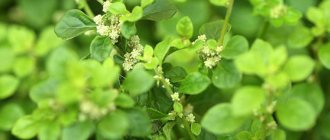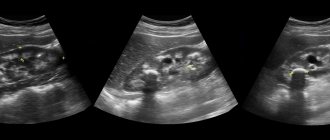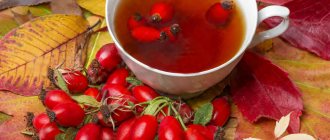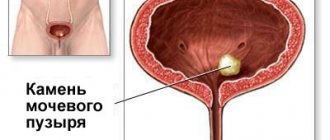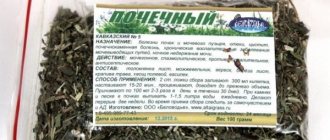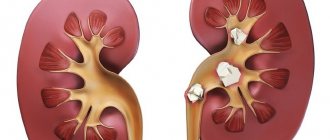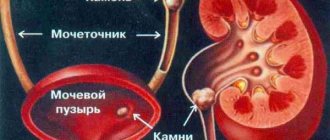In alternative medicine, lingonberry occupies a leading position for urolithiasis , as it is an indispensable remedy. Lingonberries can both alleviate the patient’s condition during attacks and completely get rid of the disease. The plant is also used for colds, low hemoglobin and to increase immunity, while even children can use lingonberry-based medicines.
Urolithiasis - buy a course at Travomarket
The healing properties of lingonberries for kidney diseases
The perennial and evergreen lingonberry shrub is filled with valuable vitamins and biologically active substances used in medicine in the treatment of a number of ailments. One of the main areas of use as a remedy is for diseases of the kidneys and urinary system. Both leaves and berries are used for these purposes. The shrub grows in northern latitudes and has long proven itself to the local population to have an antimicrobial, diuretic, and tonic effect on the human body. A detailed review of the valuable components of marsh berries will allow you to understand the mechanism of the therapeutic effect and allow you to correctly use the information received.
Useful properties of the plant
The main and most famous of them is diuretic. Lingonberry leaves and, to a lesser extent, fruits contain a large amount of glycosides: arbutin, hyperoside, vaccinin. When they enter the body, they are converted into hydroquinone, which acts as an irritant to the kidney parenchyma and stimulates the kidneys to secrete fluid. As a result, when using lingonberry preparations, diuresis increases significantly, pathogenic microorganisms, which often cause inflammation, are removed from the kidneys faster.
Another valuable property of the plant is antiseptic. Lingonberry leaves contain a large amount of free benzoic acid, which effectively suppresses pathogenic bacteria in the kidney tubules. Ripe berries contain about 0.2% benzoic acid, which, being absorbed into the stomach, is delivered through the blood to the kidneys and begins the fight against microbes here.
Doctors note the antioxidant effect of the active substances that make up lingonberries - ascorbic acid, flavonoids, quercetin. However, neither the lingonberry leaf nor its berries are superior to other herbal preparations in terms of the severity of this effect, and therefore it would be incorrect to talk about the unique benefits of the plant in this regard.
Traditional healers and herbalists are well aware of the medicinal properties and contraindications of lingonberry leaves. They contain a record amount of vitamins B and C, as well as minerals - calcium and potassium, sodium and phosphorus and others. One cannot ignore the benefits of the anti-inflammatory effect of lingonberry leaves for the kidneys. They have diuretic properties, which are used in the treatment of renal failure, normalization of water balance, and elimination of edema.
Knowing the medicinal properties and contraindications of lingonberry leaves, doctors advise strictly following the prescribed dosage when taking drugs based on them. As a rule, the course lasts 10 days, after which you should take a break for two months.
Valuable components of lingonberries
The chemical composition of berries and leaves is different, but parts of the plant will only complement the benefits for the body when consumed together. The calorie content of 100 grams of fresh berries is 46 kcal. The low-calorie treat contains 86% water, 0.7% protein, 0.5% fat, 8% carbohydrates and ash. Useful components of berries:
- organic acids (citric, salicylic, malic);
- pectin;
- sugars (glucose, fructose, sucrose);
- carotene;
- tannins;
- minerals (potassium, phosphorus, manganese, magnesium, iron)
- vitamins (retinol, ascorbic acid, tocopherol)
- benzoic acid;
The leaves and shoots of the bush are valuable for their content:
- arbutin (natural antibiotic, 9% by weight per 100 grams);
- hydroquinone;
- tannin;
- carboxylic acids (gallic, ellagic, tartaric, ursolic)
- minerals (manganese, magnesium, selenium, zinc);
- vitamins (ascorbic acid, group B)
- routine,
- coumarins;
- vaccinin (antiseptic component);
- tannins.
It should be noted that lingonberry seeds contain healthy fatty acids linoleic and linolenic. Acids belong to omega-3 and omega-6 polyunsaturated compounds.
Lingonberries have a pronounced antiseptic effect due to a large number of antimicrobial components (arbutin, benzoic acid, hydroquinone, vaccinin). Organic acids (gallic, salicylic, malic, ellagic, tartaric) provide a diuretic and antipyretic effect. Rutin, coumarins, vitamin C create a vascular strengthening effect on the body, improve fluid outflow and blood supply to tissues. The rich mineral and vitamin composition tones, strengthens the immune system, and promotes rapid recovery after illness.
How do lingonberry berries and leaves help with pyelonephritis?
Lingonberries are a natural product rich in vitamins and beneficial acids.
Thanks to its composition, the plant is successfully used in folk medicine to treat various bacterial infections. All reference books recommend using lingonberry leaves for kidney diseases, including for the prevention and treatment of pyelonephritis. For pyelonephritis, you should drink decoctions or infusions of medicinal herbs in several courses a year, primarily an infusion of lingonberry leaves.
The berries are richer in their chemical composition compared to lingonberry leaves. Benzoic acid is a very powerful bactericidal agent, similar in composition to ascorbic acid. It stops the processes: fermentation, rotting or other deposits. Berries also contain a lot of organic acids.
Procurement of raw materials
Lingonberry is a wild berry that grows in swamps. You need to make stocks of medicinal raw materials at a time when the plant contains the maximum amount of useful substances. Leaves and shoots are harvested in the spring at the stage of the appearance of buds for flowering, usually the second half of April and May. The second wave for collecting the green part of the plants takes place in October after the berry picking. The leaves are dried at a temperature not exceeding 40 degrees to preserve vitamins, crushed and stored in a dry and dark place. Berry picking lasts from August to October; the fruits are stored raw, dried, or frozen. The berries, due to the content of the natural preservative benzoic acid, do not rot for a long time without additional processing and retain useful substances.
Complex medicinal fees
Lingonberry greens and berries are often combined in preparations with other herbs to treat kidneys.
Healing decoction for bedwetting
A decoction is prepared from 50 g of lingonberry fruits and 100 g of St. John's wort. Dry raw materials and slightly crushed berries are poured into 1 liter of water and simmered over low heat for 15 minutes. Cool under the lid. Take 200 ml 3 times a day in the afternoon. The last portion is drunk immediately before bedtime.
Did you know? At the end of the nineteenth century. Swedish landowners noticed that they could earn good money from lingonberries. This was the beginning of something similar to a gold rush in Sweden, which was called the "lingonberry rush."
Phytotherapeutic collection for inflammatory processes in urolithiasis
Take 1 tbsp. l. knotweed herbs, strawberry and lingonberry leaves, mix everything. 1 tbsp. l. dry raw materials, pour 200 ml of boiling water, place in a water bath and heat for 20–30 minutes. Cool covered for about 1 hour. Take warm, half a glass 3 times a day. While taking the collection, you need to drink 1 tablet at the same time. but-shpy.
Herbal tea for cystitis
Mix 50 g each of sage and tricolor violet, 25 g each of mint leaves and chamomile flowers, 75 g of lingonberry leaves. Pour 1 tsp. the resulting dry mass is 400 ml of boiling water. Leave for 1 hour, drink instead of tea in the morning and evening.
Treatment of inflammatory processes in the kidneys
Inflammatory processes in the kidneys can occur due to various reasons. hypothermia, complications of genitourinary system infections, poor urine flow, congestion due to poor vascular condition, taking medications with a negative effect on the kidneys - these are real factors leading to nephritis and pyelonephritis. The complex and multidirectional action of the active components of the lingonberry bush helps to solve several problems at once in restoring kidney function. Drinks from berries (fruit juice and compote) and leaves (infusions and decoctions) are recommended for the treatment of acute pyelonephritis and for preventive use. Therapeutic effects for pyelonephritis:
- antimicrobial effect;
Natural anthocyanins with their antiseptic effect help inhibit the growth and reproduction of pathogenic bacteria, prevent the attachment and adhesion of microorganisms to kidney tissue. Arbutin is also active against Staphylococcus aureus and increases the effectiveness of antibiotics that stimulate phagocytosis.
- diuretic effect;
Acids affect the parenchyma, causing an increase in its secretion of fluid, thereby activating the work of the kidneys. Frequent consumption of lingonberry drinks contributes to an increase in the volume consumed and a good outflow of fluid in the body. Bacteria, toxins, and slag are washed out and restoration processes are accelerated. Reduces swelling of inflamed areas, other organs and tissues, reducing the load on the circulatory and cardiac systems. urine excretion is facilitated.
- general strengthening effect;
The high content of vitamins preserved in fresh berries, drinks made from them and leaves promotes better recovery during illness, gives strength, and has a mild calming effect on the nervous system due to B vitamins and magnesium. Ascorbic acid, vitamin E, vitamin A have an antioxidant effect. Sour berries and fruit drinks are wonderfully refreshing, charge you with positive emotions and taste good.
- vascular strengthening and vasodilating effects.
The presence of rutin, ascorbic acid, coumarins helps improve the condition of blood vessels and capillaries, improves blood flow. Potassium has a beneficial effect on the functioning of the heart muscle, iron normalizes hemoglobin levels. Lingonberry berries and leaves normalize high blood pressure, lower cholesterol levels and prevent the formation of blood clots and the development of varicose veins. Maintaining vascular health solves many problems in the treatment of diseases of the kidneys and other organs.
It should be noted that treatment of pyelonephritis occurs faster when consuming lingonberry leaves and berries. Doctors recommend the medicinal plant for complex therapy. In cases of pregnancy, this may be the primary treatment approved for use due to restrictions in drug selection.
Effect of lingonberry leaf on the kidneys and bladder
When treating urolithiasis of the bladder, you need to prepare and drink 150 ml of a healing decoction of lingonberry leaves. For this, 1 tbsp. l. leaves should be poured 1 tbsp. boiling water, continue cooking under a closed lid for 30 minutes; then cool and strain.
Important! Due to the diuretic effect of lingonberry leaves, a break should be taken between cycles of taking the decoction so as not to wash out potassium and calcium from the body.
Take the decoction warm after 30 minutes. after eating. The decoction can be diluted 1:1 with tea or rosehip decoction.
Lingonberry for urolithiasis
One of the factors contributing to the disease is insufficient fluid intake and impaired elimination from the body. With poor urine outflow, the concentration of stone-forming substances increases and mineralization of the kidneys, urinary canals, and bladder occurs. Metabolic disorders and poor diet aggravate the situation. Urolithiasis may have vague symptoms in the initial stages (difficulty urinating, swelling, pain in the lower back or groin, fatigue, increased blood pressure). Patients learn about the problem by urine test results from the doctor.
In the absence of large mineral formations (up to 4 mm) in the kidneys and bladder, drinks made from lingonberry leaves and berries can be prescribed. Improving urine excretion, rinsing the urinary system with drinks with anti-inflammatory and antiseptic effects, and relieving swelling significantly help in the fight and prevention of the disease. You need to drink at least 2 liters of fluid per day, and herbal infusions and fruit drinks are perfect alternatives. An important point in treatment is the presence of ursolic acid in drinks made from the leaves of the bush, which has the property of remineralizing deposits and softening small formations. Organic acids contained in the bush also solve the problem of alkalization of urine and normalize pH.
Lingonberry drinks are recommended for preventive purposes to prevent the formation of kidney stones, cleanse from small mineral particles, toxins, and eliminate stagnation of urine. Tannins and tannin promote better healing of areas of inflammation.
The presence of large stones is a contraindication for the use of lingonberries, since their displacement can pose a threat to life. In case of urolithiasis, you need to conduct a full examination and find out the doctor’s opinion about therapy with lingonberries, so as not to cause more harm to your health.
Lingonberry medicinal preparations
Many therapeutic and preventive preparations are prepared based on lingonberry berries and leaves. Often their purpose is to treat kidney diseases:
- jades;
- pyelonephritis;
- kidney stone diseases.
Also, based on the lingonberry plant, preparations are made for the treatment of cystitis and cysts. Complex decoctions and infusions are prepared as an anti-inflammatory agent.
Find out more about treating cystitis with lingonberries.
For kidney stones
It is believed that a decoction and infusion from the fruit and green parts of the plant can soften kidney stones and remove them. A decoction of the leaves prevents the appearance of these stones.
When stones and sand appear in the kidneys, doctors note low acidity in patients. A metabolic disorder occurs. As an aid, doctors may recommend taking lingonberry juice, decoction, or eating fresh berries. In this case, the body will receive rare microelements.
Making lingonberry juice at home is not difficult. It will help remove sand and small stones. You need to squeeze the juice out of the berries to get about 80 ml. There is no need to drink it in its pure form; it should be diluted with 150 ml of water (clean, settled or boiled). Drink 0.5 glasses 10–15 minutes before meals. There is no time limit for taking this drink.
Important! If there are large kidney stones, the effect of taking lingonberry drinks may be the opposite, i.e. large stones may become clogged in the urinary ducts and then urgent surgical intervention cannot be avoided.
For inflammatory diseases
Lingonberry leaves are often used to prepare infusions, decoctions and teas for the treatment of inflammatory diseases of various types. Due to their astringent, antiseptic and diuretic properties, such drinks are taken for inflammatory diseases of the kidneys and urinary tract . They are used for pyelonephritis, since this disease is often accompanied by an inflammatory process.
When prescribing antibiotics, drinks based on lingonberry leaves are taken in combination with other herbs. The diuretic (diuretic) effect will help speed up the healing process for pyelonephritis
For the treatment of cysts
If a benign neoplasm (kidney cyst) is detected, in addition to medications, lingonberry tea is used as therapy. However, it should be prepared only on the recommendation of a urologist , since in the case of a large diameter of the cyst (over 5 cm) and painful sensations, a completely different therapy will be required, based on medications or surgery.
It will be useful for you to learn about the use of lingonberries in the treatment of edema.
The decoction is prepared from 2 tbsp. l. lingonberry leaves. They are poured with 500 ml of boiling water and boiled for 30 minutes. and cool at room temperature. Strain before use. Drink 20–30 minutes after eating. 150 ml up to 3 times a day.
Lingonberry in the presence of cysts in the kidneys
Kidney cysts are benign neoplasms and are often discovered randomly during ultrasound diagnostics without symptoms. However, over time, the cyst becomes a place where bacteria accumulate, disrupts blood flow in the kidneys, compresses the vessels, and creates a deterioration in the outflow of urine. For small cysts, treatment is carried out with medications, infusions and decoctions of medicinal herbs. Lingonberry juice and infusion of leaves are also recommended for this task. By providing anti-inflammatory, diuretic, decongestant and cleansing effects, the active components of the evergreen shrub prevent further development of complications. With prolonged treatment, cysts may disappear completely without surgery.
Treatment of kidney cysts
It should be noted right away that lingonberries for kidneys with cystic formation are effective only if they are small in size. In addition, improvement in the condition can only be achieved if the pathology occurs without pronounced symptoms. In the acute course of the disease, when the size of the cyst is too large, treatment with folk remedies is inappropriate - it will not bring the desired result, and time will be lost. In this case, surgery cannot be avoided.
For kidney diseases, lingonberries, as we have already said, are used as an additional remedy to the main therapy. For cystic formation, tea made from the berries and leaves of the plant is effective. It is prepared from a teaspoon of dry raw materials, which is brewed with a glass of boiling water and left for a quarter of an hour. They drink it 4-5 times a day.
By eliminating excess proteins and minerals in the urine, this tea is believed to prevent material from accumulating in the cyst and slow its growth.
Ways to use lingonberries for the treatment and prevention of kidneys
Berries are most useful to eat fresh. Drinking juices and fruit drinks with lingonberries gives very good results. Frozen and dried berries also retain their healing properties almost completely. They are used to make compotes, fruit drinks, infusions and decoctions, and added to tea and culinary dishes. Heat treatment destroys some of the vitamins and biologically active substances, so it is advisable to do without it or keep it to a minimum of 5-10 minutes.
The berry infusion can be prepared cold or hot. Fruits in the amount of 200 grams are poured with 400 ml of cold boiled water and left for 6-8 hours. Afterwards, the liquid is drained and the drink is consumed, divided into several doses.
100 g of dried lingonberries are poured with 400 ml of boiling water and left for 3 hours to infuse. Use throughout the day, divided into 3-4 doses.
Infusions and decoctions of lingonberry leaves are prepared in a similar way. 1-2 tablespoons of dried crushed leaf is poured into 400-500 ml of boiling water and placed in a water bath. By heating the mixture over low heat for 10 minutes, prepare a decoction. Then cover with a lid and leave for an hour. The solution is filtered and consumed 100 ml or 1/3 cup 3-4 times a day.
The sour taste of juices and fruit drinks is sweetened with honey or sugar, the bitter taste of leaf drinks is softened with lemon. Courses last for at least 14 days, but may be longer depending on the course of the disease.
Lingonberries can not only please you with a pleasant taste sensation, but also significantly improve your overall health. Berries and leaves are available for sale and for self-harvesting. Lingonberry leaves and berries are a preventive measure for kidney disease and protection against complications.
TAGS: kidneys
WE RECOMMEND:
- Lingonberries for kidney and liver diseases Some people use only traditional medicine for treatment, others prefer Tibetan, Chinese and other methods of getting rid of diseases, and many...
- Soaked lingonberries The harvest of lingonberries is harvested for future use in the summer. But what to do if there is a lot of jam and syrup in the cellar? Prepare delicious pickled lingonberries!…
Cleansing the kidneys with lingonberries
With the help of berries, you can carry out a complete cleansing course for urolithiasis. For such a course you will need only 3 kg of berries with a daily consumption of 200 g. An important condition is to consume the berries in their pure form without adding sugar. Primary cleaning is carried out 3 times a year, subsequent cleanings are carried out 2 times a year.
We recommend reading how cranberries differ in appearance from lingonberries.
Before starting this procedure, you should cleanse your intestines. There is no need to adhere to special diets, just limit the consumption of spicy, salty foods, fatty meats, legumes and coffee during the procedure . Cigarettes and alcohol are excluded. During cleansing, the diet should contain the maximum amount of vegetables, fruits, natural juices, and lightly carbonated mineral water. You need to drink at least 2 liters of clean water per day.
The berries have a pronounced diuretic effect. As a result, slag and sand will soon begin to be removed.
Lingonberries for the kidneys: recipes for complex preparations
Traditional healers and many doctors often use in their practice compositions in which lingonberries are one of the main components. Often, for buds, lingonberry leaves are used in combination with bearberry, which has similar properties. The following recipes are common in folk medicine: take five parts of lingonberry seeds, one part each of its dry leaves, nettle, and birch leaves. Mix the ingredients thoroughly, and then brew a spoonful (tablespoon) of the mixture with boiling water (200 ml) and leave until it cools. Take the remedy for inflammation, to prevent nephrolithiasis, ½ cup four times a day for a month.
You need to mix three tablespoons each of lingonberry leaves, bearberry leaves, sage herb, dandelion root, string grass and horsetail. This mixture is poured with a liter of boiling water and left for 12 hours. Take the composition 1/4 cup up to eight times a day. This remedy is effective for kidney inflammation.
For chronic diseases, to prevent relapses, it is recommended to use a decoction of lingonberries and beets. To prepare it, you need to boil a kilogram of each separately. The berries are brought to a boil in a liter of water over low heat, and the root vegetable, previously peeled and chopped, is boiled in the same amount of water for 10 minutes. The decoctions are mixed and honey or sugar is added to taste. Take a glass a day for two weeks. Then you should take a break for two months.
Another effective way to prepare lingonberries. For kidneys, you can use lingonberry water for preventive purposes. To prepare it you will need a glass of fresh berries. They are poured with boiling water (500 ml). The product is infused for six hours. Lingonberry water is a general tonic, and therefore it is advisable to use it in winter to support the immune system. In addition, it lowers blood sugar levels.
Contraindications to the use of lingonberries
We talked a lot about the beneficial properties of lingonberries: how to take its leaves and berries, what is the duration of treatment. It is equally important to know when it is better to stop using this medicinal plant or minimize the use of drugs based on it, carefully monitoring your body’s reaction. Doctors believe that lingonberries should not be used for:
- Stomach ulcers and hyperacidity. Even when taking lingonberries in minimal quantities, it is better to do so after meals. Taking lingonberries on an empty stomach is prohibited.
- Hypotension (low blood pressure). Lingonberries lower blood pressure. The condition of a hypotensive patient can worsen sharply.
- If there is internal bleeding, especially before surgery. Lingonberries are known to thin the blood. During the treatment of urolithiasis, the combination of lingonberries with other drugs is possible only after consultation with a doctor.
